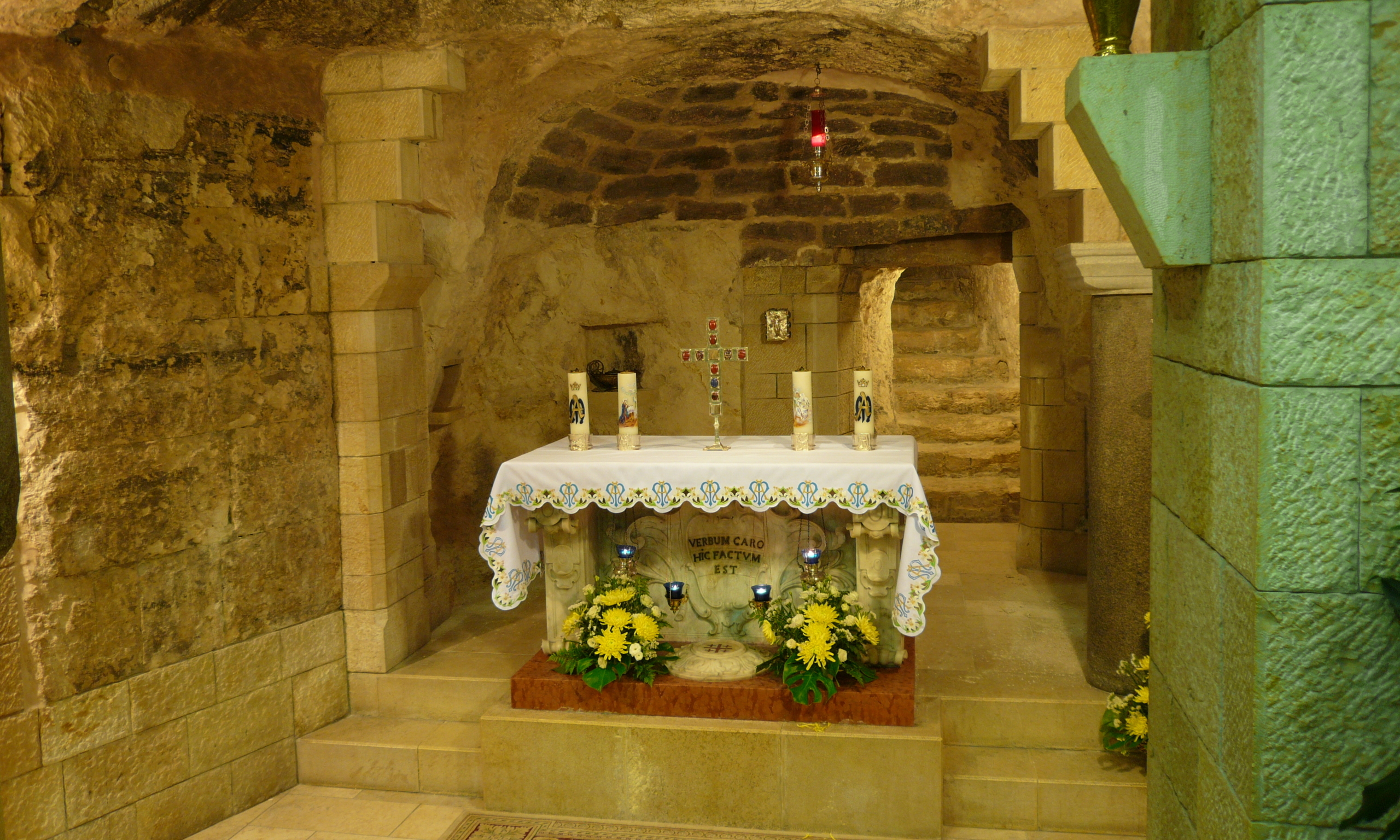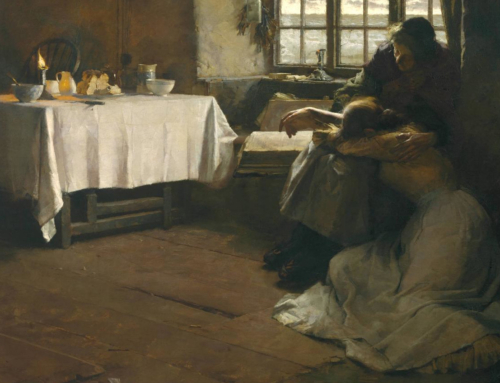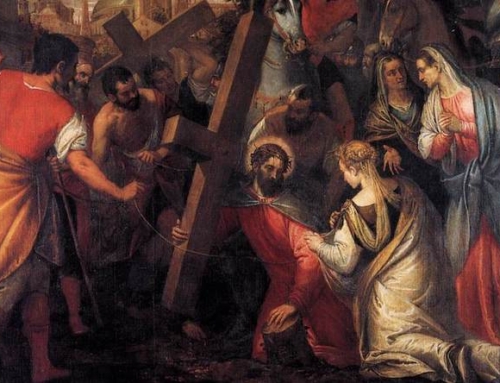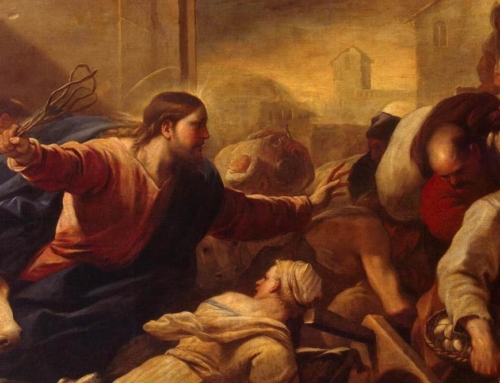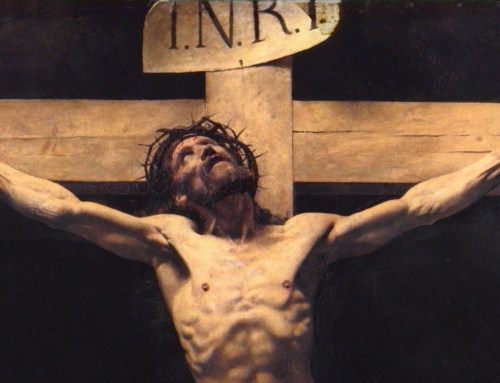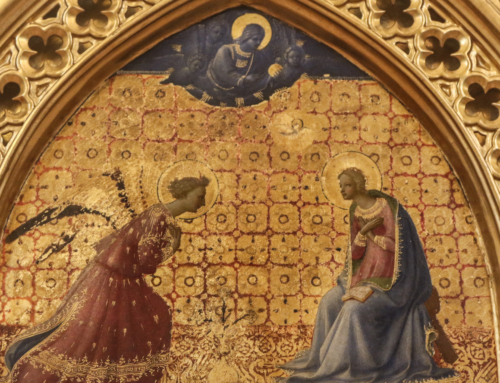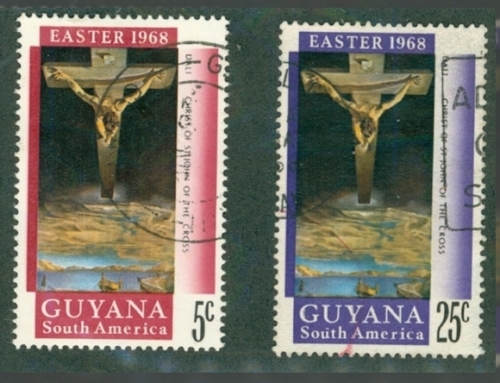When I was on pilgrimage in the Holy Land, I was deeply moved by an experience of prayer at the Church of the Annunciation in Nazareth. In the crypt of the church, I knelt before an altar upon which the words Verbum caro hic factum est were inscribed (in English, here the Word was made flesh). This phrase, borrowed from the Gospel of John, left me perplexed. Why? Because of a simple word: here.
Before that point, I often read and heard the Gospels as if they began with the words, Once upon a time. Admittedly, St. Luke does not begin his Gospel with this fairy-tale introduction; rather, he begins with a specific time. He says, “In the days of Herod, King of Judea . . . the angel Gabriel was sent from God to a city of Galilee named Nazareth” (Luke 1:5, 26). Luke begins his Gospel by invoking a specific time and a specific place. Two thousand years later, on a warm Thursday morning in May, I realized that I was in that same town of Galilee. I was kneeling in the same place where the Angel greeted a local woman, who would become the Mother of God. Most of all, I realized that it was here that God first dwelt among us in this fallen world of ours.
Today, I think that it is often difficult to remember that the Incarnation of the Eternal Word really happened. By becoming man, God subjected himself to pain, fatigue, stress, and sickness. He wanted to embrace everything that we endure, except sin. In this way, the Letter to the Hebrews tells us, “We have not a high priest who is unable to sympathize with our weaknesses but one who in every respect has been tempted without sinning” (Heb 4:15). For, in truth, Jesus underwent the same temptations that we regularly endure out of love for us.
Ultimately, Christ became incarnate so as to endure the sufferings of the Cross. These two mysteries, that of the Incarnation and the Passion, are two great acts of divine love. It is thus fitting that today’s Solemnity of the Annunciation is always celebrated in close proximity with Holy Week, because the Paschal Mystery presupposes the sublime mystery of the Incarnation.
Were these two great acts of divine love necessary? It depends. In one sense, the Incarnation and the Passion were not necessary; but in another, they were indeed necessary for the redemption of the human race. Saint Thomas uses two analogies to describe these different aspects of necessity. The first type of necessity considers how food is necessary for human life. A creature needs food for sustenance, or it will die. The second type of necessity considers the way a horse is used for a specific journey. Can someone make a long journey without a horse? Sure. But if the journey is long and arduous, riding a horse may be the most fitting means for arriving at the desired destination (especially during the time of St. Thomas). Concerning these two types of necessity, he writes, “For God with his omnipotent power could have restored human nature in many other ways. But in the second way it was necessary that God should become incarnate for the restoration of human nature” (ST III, q. 1, a. 2).
Whatever struggles the world faces, whatever chaos, sickness, suffering, and death are present during these days of trial, remember that “Christ also suffered for you leaving you an example that you should follow”(1 Pet 2:21). The clearest follower of this example is Christ’s own mother. Mary accepted the will of God in Nazareth, and, in turn, suffered as her son endured his Passion on Cavalry. The sufferings of Mary alongside her son can remind us that he came into this world and suffered here so that we might have life with him. He came to us on this day, so that we may return to the Father as his adopted children.
✠
Photo by Ramessos (CC BY-SA 3.0)

